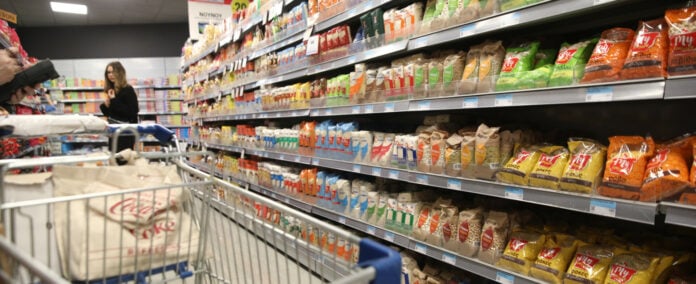With very large price increases in unprocessed foods and service prices—including rents for primary residences—soaring, Greece ranks 7th among European countries with the highest inflation for the month of June.
The key sectors—housing, energy, and food—remain under significant pressure, as shown by detailed data from Eurostat. The main driver of the inflation rate increase comes from unprocessed foods, where the annual rate of change reached an impressive +7.8%, compared to -1.7% in June 2024.
Greece significantly exceeds the European average, which amounted to 5.6%, indicative of the sharp fluctuations in the prices of fruit, vegetables and fresh produce, due to weather phenomena but also increased transport costs. Services recorded an increase of 5.4% in Greece, compared to 4.4% last year and 3.6% in the EU average. This significant increase primarily reflects the explosive rise in rents, which continue their upward trend, due to high demand and limited supply. ELSTAT has already recorded the largest percentage increase since the outbreak of the inflationary crisis for rents (over 11%), with no signs of abating.
After many months of deflation, energy is showing positive change again in Greece, reaching +2.0% from -2.4% in June 2024. Although the index is still negative at the EU level (-1.8%), the Greek market was affected by the removal of state subsidies and increases in variable electricity tariffs.
The fear of further pressure is real, as households are “inert” in “locking in” their electricity bill charges, while variable tariffs (mainly green ones, to which most consumers are also registered), continue to rise. For August, new increases are also expected, due to demand for more electricity.














